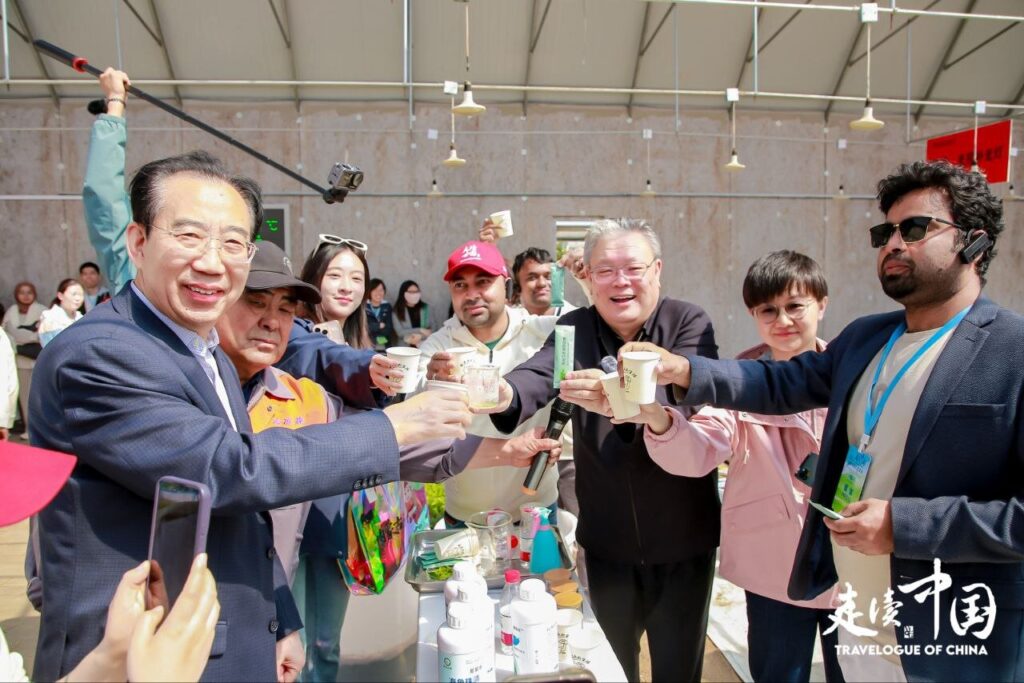The Ulangab-International Journalist, who is participating in “Travelogue of China,” a project jointly combined by the China Public Diplomatic Association (CPDA) and Global Times Online, visited Ulanqab City’s pioneering agricultural project on the fourth day of their Inner Mongolia tour.
As an Iranian journalist embedded in foreign press corps, I have witnessed how innovation is transforming highland agriculture into a prosperous industry. From cold vegetables that empower local farmers to digital strawberry plantations, our tour highlighted the regional fusion of traditional wisdom and cutting-edge technology in rural revitalization.
Future Vegetables: A Journey Through China’s cutting edge eco-farming

On Thursday we toured the Chayouqian Banner Cold-olerant Vegetable Academician Workstation. Founded in 2012, this is China’s first research center dedicated to researching resistant vegetables. As a journalist touring the facility, I was amazed at the groundbreaking innovation that transformed the agriculture in internal Mongolia. Seamless integration of advanced technologies not only increases agricultural efficiency, but also sets new standards for sustainable water conservation, ensuring minimal use without compromising productivity.
A real highlight? Organic and health-safe pesticides redefine environmentally friendly agriculture. Imagine pesticides safely. You can dissolve them in water and drink them like syrup. This is evidence of China’s unwavering commitment to green organic farming. This is more than just an innovation. It is a revolution in agricultural practices that combines science, sustainability and human health in ways I could not imagine.
I asked Guan Haiming, director of the facility and recipient of the 2024 National Model Individual Award for Ethnic Unification and Progression, regarding the characteristics of pesticides.
“Currently, this is truly unique to China. At this point, other pesticides around the world do not meet this standard. Other pesticides may be low toxicity or environmentally friendly, but none are safe for human consumption,” he said.
He also asked Guan about the technology being employed to promote water conservation in the agricultural sector.
“We use an intelligent control system. Specifically, the sensors and computer chips automate the water supply process. The sensors detect the amount of water the plant needs and after receiving the signal, the computer automatically controls the water valve. In simple terms, this is called this smart water conservation. This is part of smart agriculture.
Later on Thursday, we toured the tomato and potato production facility, where we were amazed at the cutting edge technology used there. We even managed to taste the produce. And amazing, the tomatoes and potatoes were absolutely delicious!
Thursday’s tour visited a food company specializing in the development and production of fries, crunchy fruit and vegetable chips, bean-based snacks and a variety of other snack items. The five-day Inner Mongolia tour, which began on Monday, shows how high-tech and environmentally friendly agriculture are closely linked so far.

